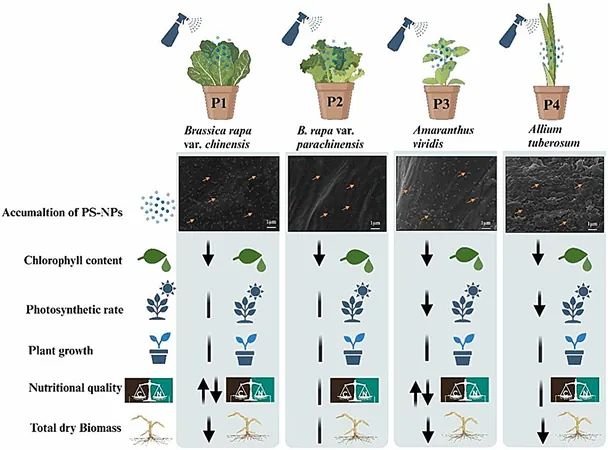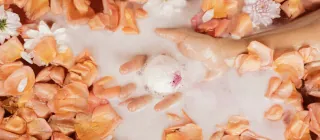
Shocking Findings: Polystyrene Nanoplastics Threaten Our Leafy Greens!
2024-11-07
Author: Olivia
Recent Research Unveils a Disturbing Trend
Recent research has unveiled a disturbing trend: polystyrene nanoplastics (PS-NPs) are accumulating in the leaves of our leafy vegetables, posing significant threats to both plant health and human nutrition. This groundbreaking study, conducted by scientists from the Xishuangbanna Tropical Botanical Garden (XTBG), sheds light on the ecological consequences of plastic pollution in agriculture.
The Breakdown of Plastic Debris
As plastic debris degrades in the environment, it breaks down into micro-nanoplastics (MNPs), which can infiltrate the very crops we rely on for sustenance. The XTBG team specifically investigated how these PS-NPs accumulate in popular leafy vegetables, including *Brassica rapa var. chinensis*, *Amaranthus viridis*, *Brassica rapa var. parachinensis*, and *Allium tuberosum*.
Variation in PS-NP Accumulation
The researchers discovered that the degree of PS-NP accumulation varies significantly based on the species of plant and the characteristics of their leaves. Plants with smoother surfaces and a lack of trichomes (hair-like structures) demonstrated a greater capacity to absorb these harmful particles compared to those with protective trichomes. This finding raises alarm bells about the vulnerability of certain crops to plastic infiltration.
Microscopic Observations and Implications
Microscopic observations revealed that smaller PS-NPs can readily penetrate the cuticle and epidermis cells of the leaves, leading to potential physiological disturbances. The study concluded that not only do these nanoplastics threaten the plants’ growth and nutritional value, but they also detrimentally impact essential processes like photosynthesis and chlorophyll production. This means we may unknowingly consume vegetables that are compromised in terms of both health and safety.
Call to Action
"The implications of PS-NP accumulation are serious," said Xu Guorui, a lead author involved in the research. "We must prioritize understanding these risks, especially in the contexts of agricultural production and environmental conservation."
Conclusion
As we face an escalating global plastic crisis, this study highlights the urgent need for sustainable agricultural practices and stricter controls on plastic use. The health of our planet—and our plates—may depend on it. Will your favorite leafy greens be the next casualty in this environmental emergency? Stay informed and make choices that reflect your commitment to a safer, plastic-free future!









 Brasil (PT)
Brasil (PT)
 Canada (EN)
Canada (EN)
 Chile (ES)
Chile (ES)
 España (ES)
España (ES)
 France (FR)
France (FR)
 Hong Kong (EN)
Hong Kong (EN)
 Italia (IT)
Italia (IT)
 日本 (JA)
日本 (JA)
 Magyarország (HU)
Magyarország (HU)
 Norge (NO)
Norge (NO)
 Polska (PL)
Polska (PL)
 Schweiz (DE)
Schweiz (DE)
 Singapore (EN)
Singapore (EN)
 Sverige (SV)
Sverige (SV)
 Suomi (FI)
Suomi (FI)
 Türkiye (TR)
Türkiye (TR)